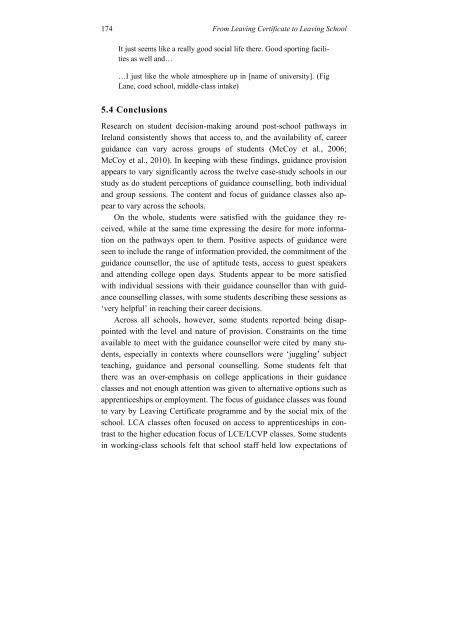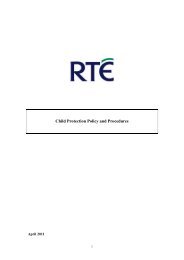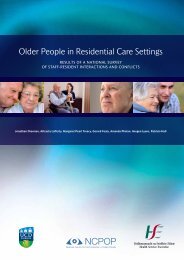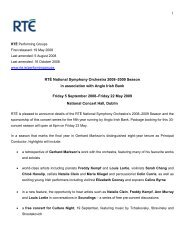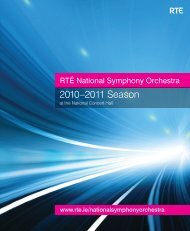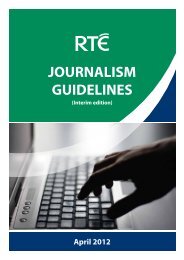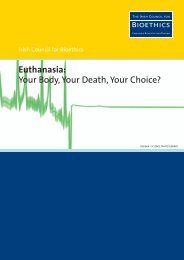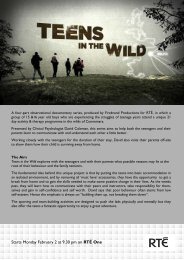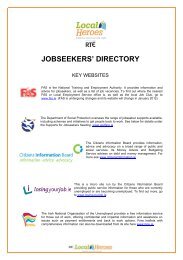From Leaving CertiFiCate to Leaving SChooL a Longitudinal Study ...
From Leaving CertiFiCate to Leaving SChooL a Longitudinal Study ...
From Leaving CertiFiCate to Leaving SChooL a Longitudinal Study ...
Create successful ePaper yourself
Turn your PDF publications into a flip-book with our unique Google optimized e-Paper software.
174<br />
<strong>From</strong> <strong>Leaving</strong> Certificate <strong>to</strong> <strong>Leaving</strong> School<br />
It just seems like a really good social life there. Good sporting facilities<br />
as well and…<br />
…I just like the whole atmosphere up in [name of university]. (Fig<br />
Lane, coed school, middle-class intake)<br />
5.4 Conclusions<br />
Research on student decision-making around post-school pathways in<br />
Ireland consistently shows that access <strong>to</strong>, and the availability of, career<br />
guidance can vary across groups of students (McCoy et al., 2006;<br />
McCoy et al., 2010). In keeping with these findings, guidance provision<br />
appears <strong>to</strong> vary significantly across the twelve case-study schools in our<br />
study as do student perceptions of guidance counselling, both individual<br />
and group sessions. The content and focus of guidance classes also appear<br />
<strong>to</strong> vary across the schools.<br />
On the whole, students were satisfied with the guidance they received,<br />
while at the same time expressing the desire for more information<br />
on the pathways open <strong>to</strong> them. Positive aspects of guidance were<br />
seen <strong>to</strong> include the range of information provided, the commitment of the<br />
guidance counsellor, the use of aptitude tests, access <strong>to</strong> guest speakers<br />
and attending college open days. Students appear <strong>to</strong> be more satisfied<br />
with individual sessions with their guidance counsellor than with guidance<br />
counselling classes, with some students describing these sessions as<br />
‘very helpful’ in reaching their career decisions.<br />
Across all schools, however, some students reported being disappointed<br />
with the level and nature of provision. Constraints on the time<br />
available <strong>to</strong> meet with the guidance counsellor were cited by many students,<br />
especially in contexts where counsellors were ‘juggling’ subject<br />
teaching, guidance and personal counselling. Some students felt that<br />
there was an over-emphasis on college applications in their guidance<br />
classes and not enough attention was given <strong>to</strong> alternative options such as<br />
apprenticeships or employment. The focus of guidance classes was found<br />
<strong>to</strong> vary by <strong>Leaving</strong> Certificate programme and by the social mix of the<br />
school. LCA classes often focused on access <strong>to</strong> apprenticeships in contrast<br />
<strong>to</strong> the higher education focus of LCE/LCVP classes. Some students<br />
in working-class schools felt that school staff held low expectations of


